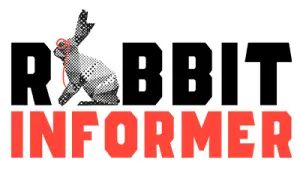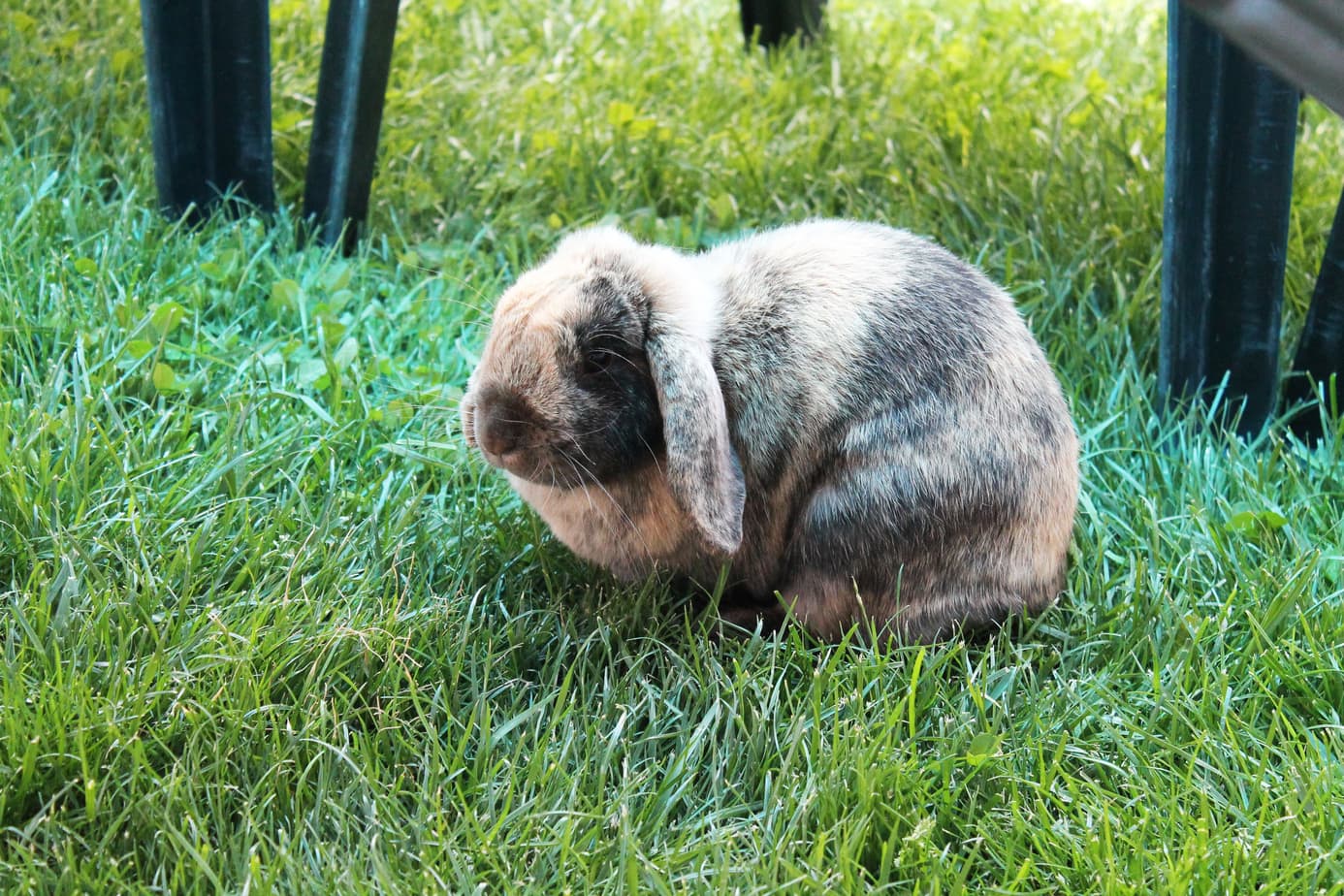
Rabbits are sensitive creatures, and when it comes to discipline, it is important to be firm but not harsh in redirecting behavior that isn’t appropriate or tolerated. They’ll remember bad experiences for the rest of their lives.
The best ways of disciplining your rabbit are to maintain dominance, give time-outs to cool off, make a squeal when being bit, or use a spray bottle for minor misbehavior. Never yell, hit, or ignore your rabbit’s bad behavior. Redirect bad behavior as it occurs.
There are quite a few ways to correct bad behavior from your rabbit, and it is important to follow these guidelines to help you maintain a bond with your bunny and to create a healthy and lasting relationship.
Use an Authoritative Voice
Rabbits are intelligent creatures and can learn several words and commands if you take the time to teach them diligently. It can be difficult at first, but helping them to learn with treats and encouraging pets are great ways of teaching them words and commands. Being firm and strict when it comes to telling them these commands has a greater chance of sticking in their minds than just feeding them treats and telling them “good job”.
The word “no” is always heard and learned more quickly because that is what comes to mind when stopping them. Be firm, but never aggressive. However, you can even teach them commands such as “come here,” “don’t do that,” or even how to get on and off the couch/bed.
It can be difficult to teach them not to do things, so also teaching them other tricks with treats can help them to learn both kinds of behaviors and what can make you proud and give treats. Don’t allow your rabbit to dictate what behaviors are acceptable, when they get treats, and who is the boss.
Show Dominance
An excellent way of correcting naughty behavior is by applying just a slight amount of pressure to the back of your rabbit. Don’t force your hand down onto them, but just put some pressure onto your rabbit to hold them down for just a short period of time. Don’t do this if you think you could cause your rabbit any sort of harm.
The reason this works so well is rabbits don’t like to be restricted. Rabbits can get agitated if you’re not being playful or giving them their treats or food on the schedule that you’ve set. This isn’t necessarily harmful behavior, but if it seems inappropriate and you want to prevent this, just apply a small amount of pressure.
TIP
Your attempts to correct your rabbit’s behavior will go a lot further if your rabbit is bonded tightly with you. Redirection, correction, and other techniques will be far more effective. There are a few simple things I do with my rabbits all the time to help grow that bond between us, making life so much easier. Try these methods for yourself by taking a look at my article all about how to bond with your rabbit here.
This technique can also be used if a rabbit is getting a little too frisky or aggressive with another rabbit. Rabbits technically enjoy being the center of attention so they may try to hurt another rabbit. This misbehavior is easily directed with some slight pressure, and they will move on and correct themselves.
Don’t Spank or Use Physical Force
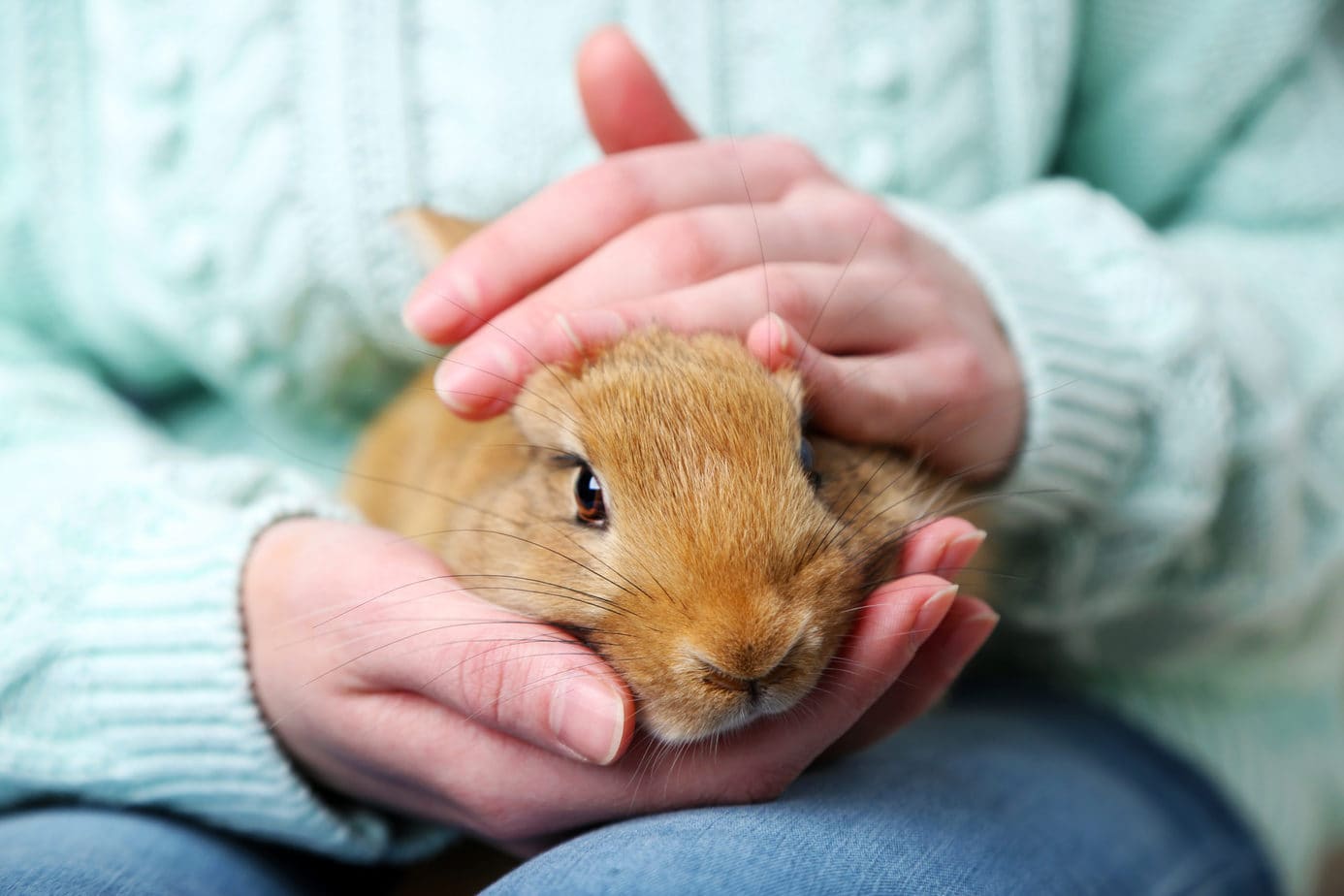
When your bunny does something that you don’t particularly want them to do or has an attitude that needs to be corrected, a spanking will not stop that behavior. If you spank a rabbit, it can spook them. When they’re hit, they may get scared and will hide for hours, if not days.
A rabbit comes with its own personality and spanking that personality out of them can cause them to be fearful. Don’t pick them up or take them off of the ground after they know they’re in trouble because it will scare them and you will become something they fear. Spanking them may even cause a rabbit to become infuriated.
They may enjoy chewing on a specific chew or your couch, and if you physically punish them for that is considered a confrontation, and they will become standoffish and aggressive towards you.
Use a Spray Bottle
Just like cats, a quick mist or squirt of water will instantly stop the bad behavior in your rabbit. This shouldn’t be done always towards the rabbit. When the rabbit is chewing on something it shouldn’t, state an authoritative “No” while squirting the bottle into the air.
The sound will instantly draw the attention of the rabbit and stop them. If they turn around and continue to misbehave, then do a gentle squirt at them to stop them immediately.
Keep in mind not to spray the rabbit directly in the face or behind. Again, rabbits are like cats in that they don’t like water, so continuously spraying them can cause them to become either incredibly skittish or misbehave. Use it when you notice something that you can’t attend to immediately. If you have to spray the bottle twice, then it is time for a time out.
Do Give Time Outs
This is an exemplary method of “punishment” when it comes to redirecting the naughty behavior of your rabbit without having to be aggressive. This method should be used in time with using an authoritative voice to indicate that you are in charge and bad behavior will not be tolerated.
A time out is just as if you were giving your toddler a time out on a chair in a corner. The time out spot for your rabbit shouldn’t be a place where they can still get attention or in a louder area. It shouldn’t be in their cage because that is where they associate happy memories and quiet time. It should be in a part of your home where they are removed from attention and socialization.
Don’t allow the time out to be super extensive and long, but enough to remove them for a period of time and give them time to basically think about what they did.
Make a Noise When They Bite You
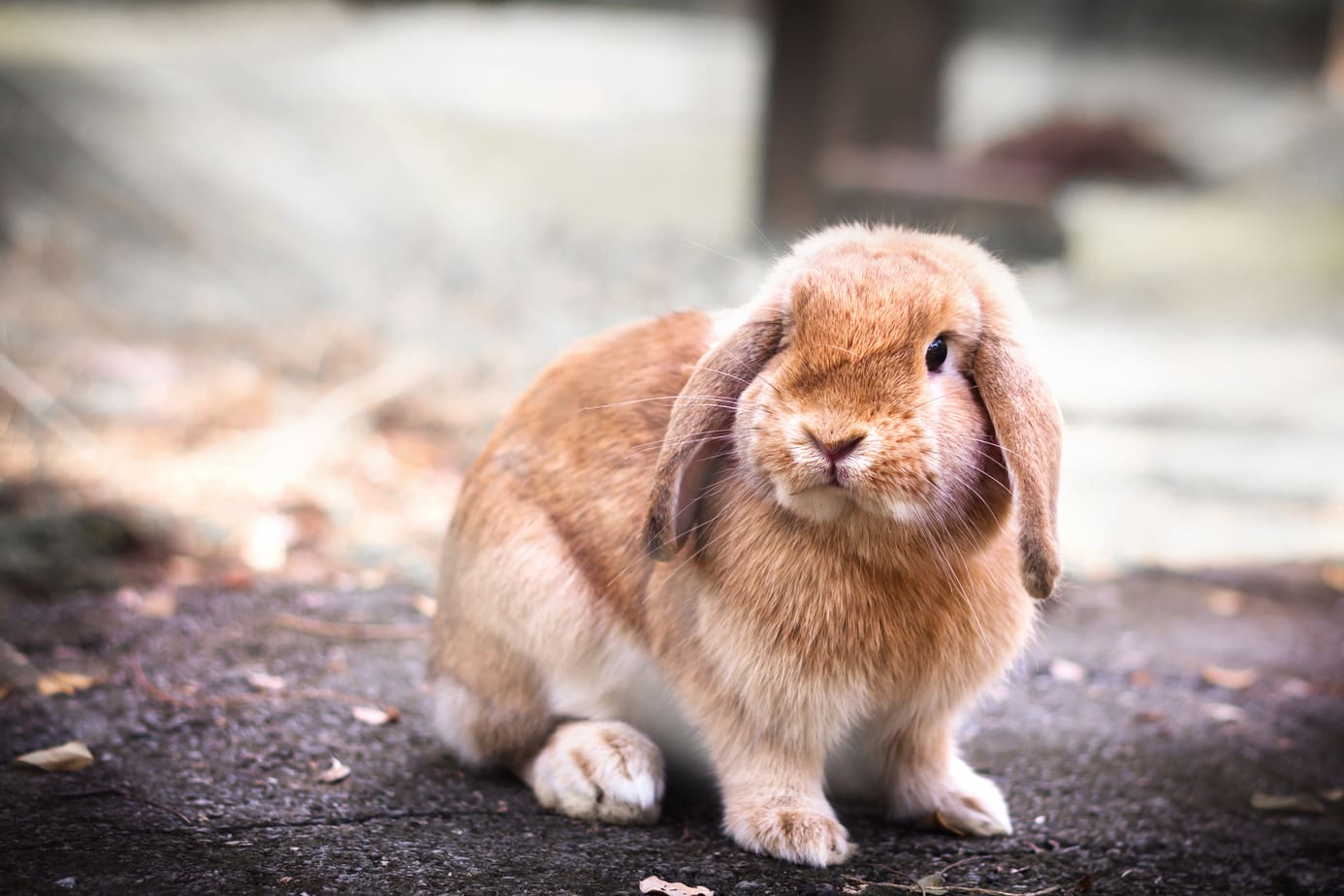
Rabbits can give you a nibble out of affection when they want your attention or you’re giving them sweet pets, but sometimes your bunny will bite you because it is not getting enough attention, you deviated from the schedule, or anything else that mildly upset them.
You will certainly tell when it is a nibble of affection or a bite of frustration. When they do bite you hard enough to hurt, make a loud enough grunting noise that startles them enough to stop. It shouldn’t be aggressive or loud enough to scare them away, but enough to stop the behavior instantly.
Your rabbit will recognize that it is hurting you if you continuously make this noise when they bite you. Your rabbit will hopefully come to recognize that this is hurting you and they will stop because of course, they don’t want to intentionally harm you.
Don’t Clap
Loud noises will instantly startle a rabbit and make them fearful. Loud noises are not an effective way of stopping bad behavior because it just scares them and they will run away out of fear instead of learning to stop. Shocking your rabbit by clapping can actually be detrimental to the overall health of your rabbit and can even cause death.
It is incredibly discouraged to clap around your rabbit to stop them. Even clapping quietly can startle them terribly; all of the other ways listed are much better alternatives to clapping.
Some Behaviors Should Be Tolerated and Handled
Redirecting your bunny to chew on toys or have a chew toy is a better way of getting your rabbit to stop doing certain behaviors. Just like other animals, rabbits have personalities and they will do whatever they want because they have a mind of their own.
Toys help them to chew on something or get their frustrations out instead of being naughty and chewing on things they shouldn’t be.
It is easier to allow them to do small things that can be tolerated such as nipping at you or chewing on a shoe for just a moment before being caught. It is better to laugh things off than to be constantly trying to prevent your rabbit from doing anything that you don’t like. Simply take things away that you don’t want to be chewed or ruined to keep their naughtiness to a minimum.
DID YOU KNOW? Pregnant rabbits are often more aggressive out of instinct. So if your female rabbit is suddenly misbehaving, this could be the cause. To find out how to mellow things out, take a look at this very important page Are Pregnant Rabbits Aggressive? What to Know.
Best Ways to Redirect Behavior
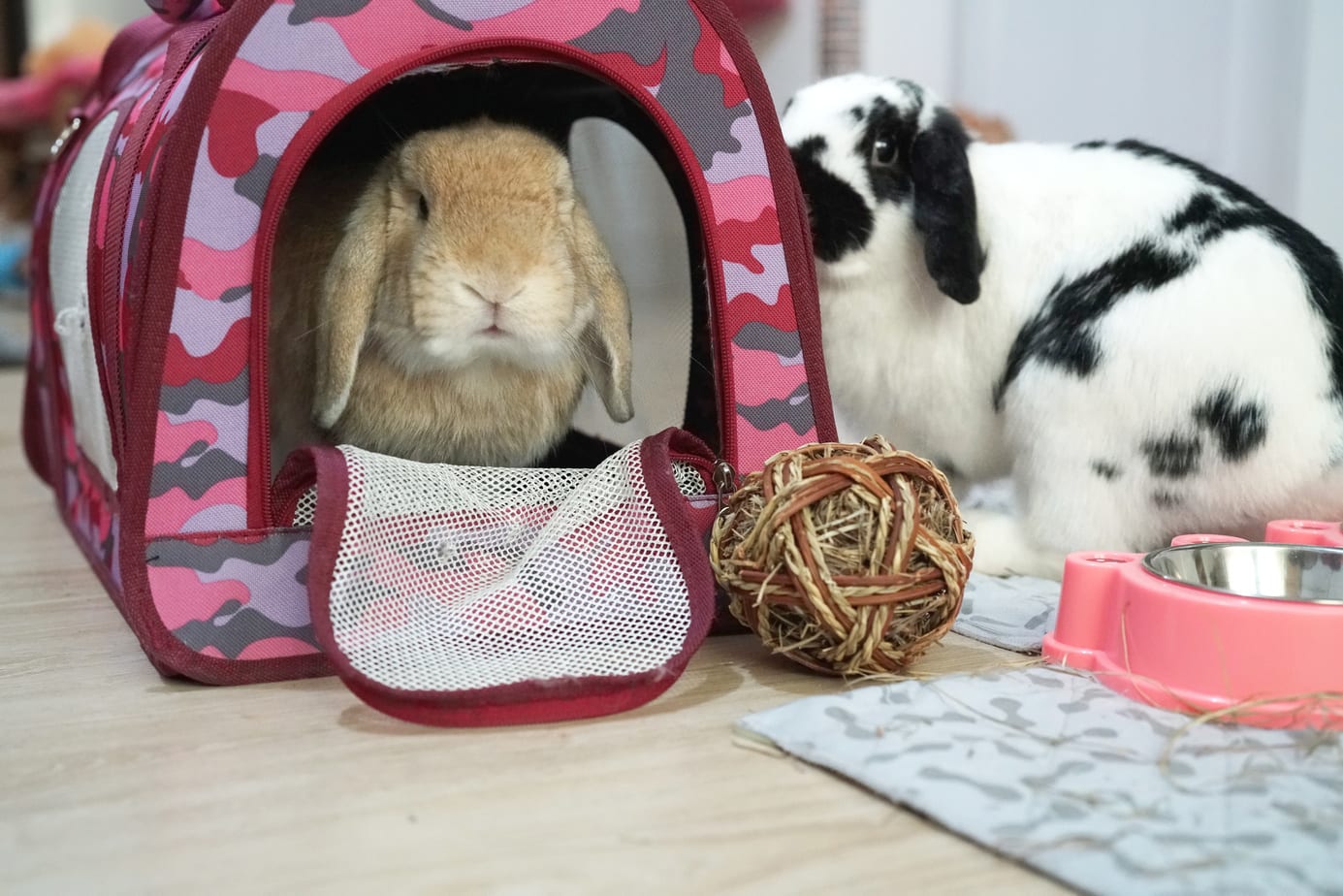
Rabbits do enjoy chewing on items that are flexible or chewy, so it is best to give them plenty of toys and lots of exercises that give them directions into what they can do and prevent them from doing naughty things.
Of course, it is impossible to stop them from doing everything naughty but focusing their attention on other things is better for your rabbit to still get enjoyment out of chewing or gnawing on things that can relieve their stress.
Rabbits are active creatures, and giving them lots of exercise and toys can wear them out and encourage them to be active without being naughty. At any given pet store, you can find bridges for rabbits to run up and down on or balls to roll around and chew on.
Encourage them to have fun instead of being aggressive when they just want to have an outlet for all of their energy. The most important thing you can remember is to have patience with your new furry friend and show them lots of love, it’ll be returned to you 10-fold. There are some healthy ways you can show your rabbit love listed here: How to Show a Rabbit Affection: 8 Simple Tips.
More Must-Know Information
- Rabbit Language: 27 Ways Bunnies Communicate – This is one of the most critical pieces of information on this website. If you want to understand your rabbit, you’ll need to have an idea of how they communicate. This page lists the common behaviors to look for in your rabbit and what it’s telling you! Don’t start disciplining your rabbit until you know how they communicate.
- Will a Rabbit’s Personality Change After Neutering? – Disciplining your male rabbit too often? Male rabbits may behave differently after neutering and a lot of it is for the better! Here’s how you can expect your pet rabbit’s personality to change after neutering.
- Rabbit Growling: What It Means & What to Do – Are you getting a strange growling noise from your rabbit? Here’s what this behavior means and what you should do about it. Definitely Don’t just ignore it!
